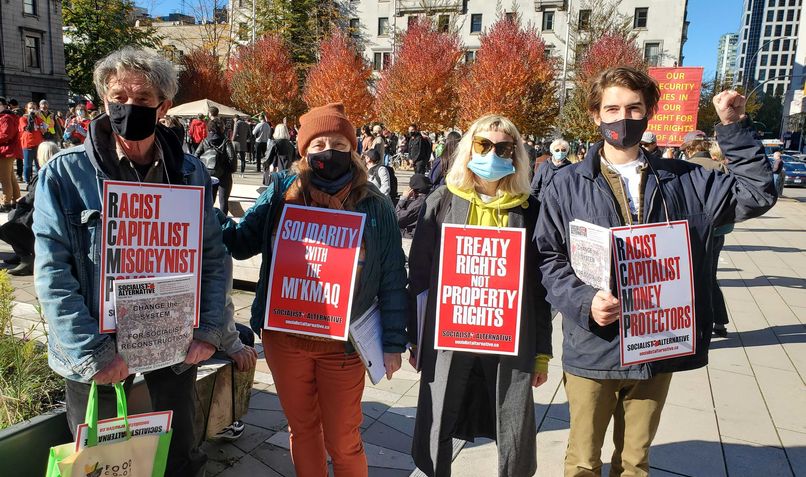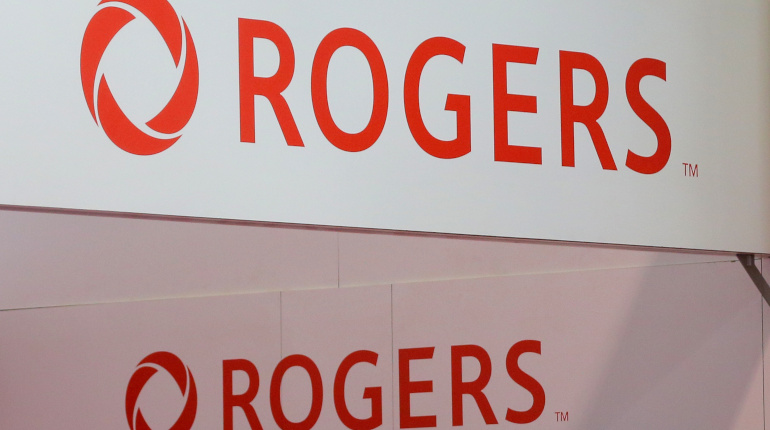Violent and disturbing conflicts between commercial and Mi’kmaw (also written as Mi’kmaq) fishers have been seen around the world. Videos from mid-October show commercial fishers and their supporters swarming lobster facilities, trapping Mi’kmaw fishers inside one, torching a vehicle outside the other. There are images of dumped lobsters on the ground.
A few days after these videos emerged, a raging fire burned a lobster storage facility to the ground. Police have said this is a suspicious fire.
These incidents should have been foreseen by the authorities. For weeks, videos, photos and screenshots of online comments have been circulating on social media. These included suggestions to “burn Mi’kmaw boats and vehicles, graphic descriptions of physical harm, racial slurs like ‘wagon burners,’ and suggestions that ‘natives go back where they came from.’ In one video, captured on TikTok during heated interactions on Oct. 14 and since shared over 10,000 times, a crowd of men make racist references about a Mi’kmaw woman ‘casting a f–king spell’ on them and ‘smoking the peace pipe.’”
These racist and violence actions targeted Mi’kmaw fishers in the south of Nova Scotia. They show a deep divide between Indigenous and non-Indigenous fishers. While this racism is real, a deeper look at this situation reveals broad systemic racism, government unwillingness to respect treaty rights affirmed by the Supreme Court of Canada, and corporate control of the fisheries. Much of the blame for the current state of affairs rests squarely on the shoulders of the Canadian government.
Sipekne’katik face violence after fishery launch
The Sipekne’katik First Nation launched a “moderate livelihood” self-regulated fishery on September 17. This date marked the 21st anniversary of the landmark Marshall decision that affirmed the treaty rights of the Mi’kmaw to hunt, fish and gather in pursuit of a “moderate livelihood.” The first fishing licence was awarded to Randy Sack, the son of Donald Marshall Jr., the Mi’kmaw fisher who challenged the courts and won the Supreme Court case. After years of no progress in discussions with the federal Department of Fisheries and Oceans (DFO), the Sipekne’katik took matters into their own hands and issued fishing licences and lobster trap tags.
Despite the 1999 Supreme Court decision, the Mi’kmaw continue to face strong and violent opposition from the commercial fisheries and DFO. Just one year after the landmark case, twenty years ago, the DFO brutally attacked three Mi’kmaw fishers. This attack was broadcast on national television. The video clip shows the DFO boat ramming into the much smaller Mi’kmaw boat, and then turning around and coming directly back at the sinking boat, forcing the three Mi’kmaw fishers to jump into the water. Even after they were in the water, the video coverage shows one of the DFO officers beating one of the fishers with a rod.
On October 14, Jolene Marr, the sister of the Mi’kmaw fisher who was trapped in the lobster storage facility and attacked by a violent mob, began a Facebook live stream after she was notified by her brother of what was happening. Her 90-minute live stream, started before she arrived on the scene, captured the events. It took two hours for the police to even respond. Jolene, who regularly does live streaming, says “social media and live streaming are crucial tools to combat racism…. The world’s finally getting to see the modern-day racism that the Mi’kmaw people here in Nova Scotia face every day.”
1760-61 treaty affirmed and ignored
These incidents could have been prevented a long time ago. It has been 21 years since the Marshall decision affirmed the Mi’kmaw’s treaty rights to fish, hunt and gather. However, these rights go back centuries.
The Mi’kmaw Nation has lived in the area now known as the Atlantic Provinces and the southern Gaspé Peninsula since time immemorial with archeological evidence going back over 10,000 years. This area is known to Mi’kmaw people as Mi’kma’ki. Their treaty right to hunt, fish and gather in pursuit of a “moderate livelihood,” based on the Peace and Friendship Treaties of 1760-61, was affirmed by the Supreme Court of Canada on September 17, 1999 in the Donald Marshall case.
Little appears to have changed. DFO has launched initiatives in response to the Marshall decision, which provided some Mi’kmaw with commercial fishing licences, training, equipment and gear. In 2017, Fisheries and Oceans Canada began to negotiate time-limited Rights Reconciliation Agreements on fisheries with Mi’kmaw and Maliseet First Nations in Nova Scotia, Prince Edward Island, New Brunswick and the Gaspé region of Quebec as well as with the Peskotomuhkati Nation at Skutik in New Brunswick.
However, the Assembly of Nova Scotia Mi’kmaw Chiefs say they have been trying to negotiate a deal with DFO for years. Despite the Marshall decision, which recognized their rights to earn a moderate living from fishing, “exercising these rights continues to bring frustrations, conflict and hardships to our people.” At the centre of this impasse appears to be a definition of what a “moderate livelihood” means.
The DFO has expressed concerns that the Mi’kmaw have launched their commercial fishery outside of the commercial fishing season and are fishing without a licence. DFO issued a statement, saying “A sound management framework is necessary for the management and conservation of fish stocks.” They maintain that fishing without a licence is a violation of the Fisheries Act.
While some commercial fishers have cited concerns about conservation, Tony Charles, acting director of the School of the Environment at Saint Mary’s University in Halifax says that the moderate livelihood fishery is “absolutely a tiny, tiny fraction of the regular, conventional commercial fishery. And so, at the moment, there really isn’t an issue of conservation.”
In an emergency debate in the House of Commons on October 19, NDP leader Jagmeet Singh said, “The scale of the fisheries, the scale of the Mi’kmaw operation is in no way a risk to the conservation and any suggestion that this is about conservation is wrong, is clearly an ongoing example of systemic racism.”
Elephant in the room: corporate lobster fishery
For decades, the Mi’kmaw have tried to reach an agreement with the DFO to no avail. While the government has not moved on their treaty rights, it has bent over backwards to accommodate Clearwater Lobster, a major offshore fishing company headed by billionaire John Risley, one of the richest men in Nova Scotia. Since 2008, Clearwater has owned the rights to all offshore lobster fished in offshore Atlantic Canadian waters.
In an interview with CBC’s As it Happens, Tony Charles talked about the elephant in the room that’s not been discussed. He talked about how one company, Clearwater, has a monopoly on the lobster fishery. He asked if the “inshore lobster fishermen are fighting over the scraps while the corporate offshore lobster industry is feasting on the banquet?”
Indeed, the Council of Canadians identifies in some detail the special treatment that Clearwater has been given by both the federal and provincial governments. The Ecology Action Centre (EAC) has documented how Clearwater Seafood has been fishing illegally for years, leaving thousands of traps unattended at sea for weeks to months at a time, causing harm to lobster and other species, including endangered cod and cusk. The EAC noted in February 2019, “It appears that Clearwater has been flouting the rules for years in order to make many more millions profit off public resources that it holds exclusive access to. And at the same time, wasting tonnes of lobster, likely vastly undercounting catch of endangered fish like Atlantic cod and cusk, and increasing the risk of entanglement for whales and sea turtles.”
The Council of Canadians maintain that governments, over the past forty years, have favoured corporate fishing operations like Halifax-headquartered Clearwater over small-scale owner-operators and Mi’kmaw fishers and that both federal and provincial governments have given the company special treatment. Clearwater has been given exclusive rights to Lobster Fishing Area 41, which starts 80 kilometres from shore and runs to the 200-mile limit, extending from Georges Bank to the Laurentian Channel between Cape Breton and Newfoundland.
The company has been allowed to own all eight lobster fishing licences in LFA 41, which is not allowed in any other fishing areas. They are subject to “extremely minimal outside fisheries observation with only four percent of its catch reported on. Clearwater uses one huge fishing boat with 6,500 traps, where an owner-operator commercial boat would have up to 400 and a Mi’kmaq moderate livelihood boat would have 50. Clearwater fishes year-round, while DFO restricts owner-operators to fish only in a limited season.
The Council of Canadians have characterized this as an “archetypal clash between a colonial state and an Indigenous Nation.” The chief of Sipekne’katik, Mike Sack, said that their problem was not with the non-Indigenous fishermen. “We have an issue with the levels of government that are not upholding our rights,” he said.
Government failure
It is not new that government favours corporate interests over Indigenous rights. We have seen this time and again. In the case of the RCMP invasion of Wet’suwet’en territory earlier this year, a total of $13 million was spent on policing to protect the interests of the Coastal Gas Pipeline.
Senator Murray Sinclair, an Indigenous judge who headed Canada’s Truth and Reconciliation Commission, called the federal government’s response to the tensions over Indigenous fishing rights “an abject failure.” He said, “I’m disheartened by the fact that the government’s leadership – the leadership of this country – is not stepping up to the plate.”
This is yet the latest egregious failure of Canada’s so-called reconciliation. While Socialist Alternative denounces the racist violence of some non-Indigenous fishers towards Mi’kmaw fishers, we also denounce the systemic racism of the RCMP in not intervening to stop these incidents, effectively abandoning the Mi’kmaw to mob violence. The DFO and federal government needs to account for its stalling on negotiations with the Mi’kmaw on their treaty rights. We call on the government of Canada to put community interests before corporate greed, to stand up against systemic racism within government and to respect the treaty rights of the Mi’kmaw to a “moderate livelihood fishery.”
The failure of government to respect Indigenous rights for the last 21 years, on top of the hundreds of years before that, is just more example of how capitalism puts greed before need. In a socialist world human needs and rights will always come first.




